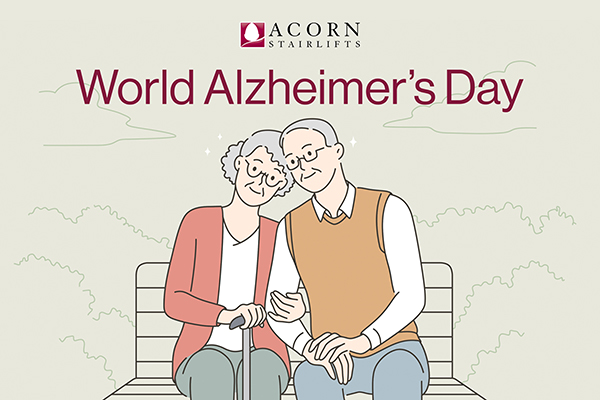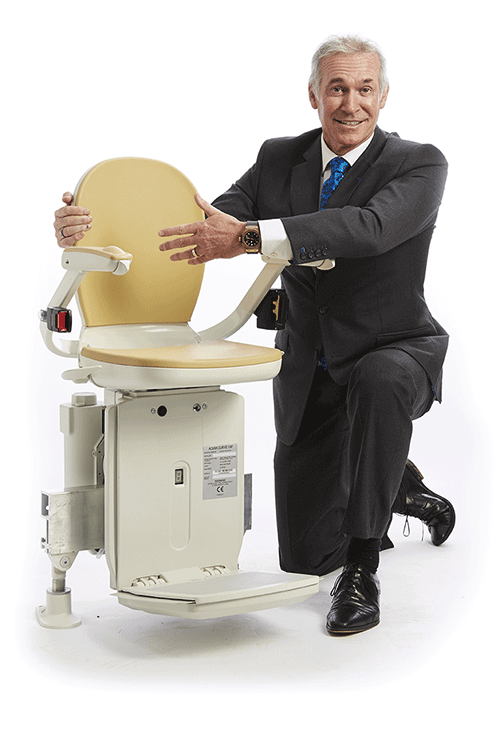Alzheimer’s doesn’t just affect memory — it reshapes families, strains relationships, and alters daily life in ways statistics can never truly capture.
Behind every number is a parent, grandparent, sibling, or friend. Someone whose laughter once filled a room, whose stories held generations together, and whose presence now slowly slips away.
World Alzheimer’s Day 2025 is a moment to pause and reflect— a time to see the people behind the diagnosis, to support those living with Alzheimer’s, and to honour the carers who walk beside them with patience and love.
However, this day is about more than awareness. It’s an invitation to deepen our compassion, grow our understanding, and come together in the everyday moments that matter most—reminding us why continued action and support are so important.
When is World Alzheimer’s Day?
World Alzheimer’s Day is observed every year on 21 September.
The day is dedicated to raising awareness about Alzheimer’s and other forms of dementia, challenging stigma, and reminding us all of the vital importance of compassion and understanding.
It’s also a time to honour the loved ones we’ve lost and strengthen our commitment to finding better treatments, earlier diagnoses, and, one day, a cure.
What Is Alzheimer’s Disease?
Alzheimer’s disease is a progressive neurodegenerative disorder—the most common form of dementia—that slowly erodes memory, thinking, and reasoning abilities to the point where daily life becomes increasingly difficult.
Eventually, people may lose the ability to perform simple tasks, respond to their environment, or recognise loved ones.
The disease is characterised by the buildup of amyloid plaques and neurofibrillary tangles, which damage neurons and shrink regions like the hippocampus, essential for memory and learning.
Global Impact
- Over 55 million people worldwide are living with dementia, with 60–70% of cases being Alzheimer’s.
- These numbers are expected to double every 20 years, rising to 78 million by 2030 and 139 million by 2050.
- Alzheimer’s is a leading cause of death globally, ranking as the 7th leading cause worldwide in 2019.
Did you know?
A new case of dementia is diagnosed somewhere in the world every three seconds.
Early Alzheimer’s Signs and Symptoms to Look Out For
Alzheimer’s doesn't always announce itself with dramatic changes—it often sneaks in through subtle, everyday clues. Spotting them early can make a huge difference in planning, caring, and supporting.
Here are the most common early warning signs, backed by trusted research:
1. Memory Loss That Disrupts Daily Life
Forgetting recent conversations, important dates, or repeatedly asking the same questions are classic early indicators. When this memory lapse begins to interfere with daily routines, it’s a red flag.
2. Trouble Planning or Solving Problems
Alzheimer’s can make it hard to follow familiar steps—like organizing a bill, following a recipe, or tracking expenses. This decline in concentration and problem-solving ability is an early sign.
3. Difficulty Completing Familiar Tasks
Tasks once done effortlessly—driving to a known location, preparing meals, using appliances—can suddenly feel unfamiliar or confusing.
4. Confusion with Time or Place
Losing track of dates, misremembering where you are or how you got there isn’t just forgetfulness—it may point to deeper cognitive shifts.
5. Visual or Spatial Challenges
Struggling with coordination, depth perception, or reading steps (e.g., stairs, maps) could signal Alzheimer’s affecting the brain’s visual-spatial processing.
6. Language Difficulties
When finding simple words becomes difficult or speech gets jumbled, it could be more than just normal word-finding blocks—it might be an early cognitive sign.
7. Poor or Decreased Judgement
Decisions that seem out of character—like strange financial decisions or odd clothing choices (e.g., wearing heavy clothes on a hot day)—may indicate diminished judgement.
8. Misplacing Items and Inability to Retrace Steps
Everyone misplaces things. But putting them in bizarre places—like an iron in the freezer—or being unable to retrace steps? That’s a warning.
9. Withdrawal from Work or Social Activities
Breaking away from jobs, hobbies, or social events—due to memory issues or self-consciousness—can be an early emotional and cognitive change.
10. Changes in Mood or Personality
Early Alzheimer’s often leads to emotional shifts—like irritability, apathy, suspicion, or anxiety—without an obvious cause.
Carer Tips: How to Support Someone Living with Alzheimer’s
Supporting someone with Alzheimer’s requires patience, understanding, and practical strategies:
- Communicate Clearly and Simply – Short sentences, calm tone, and visual cues can make a big difference.
- Create a Safe, Supportive Environment – Remove hazards, label rooms, and maintain a consistent routine.
- Encourage Independence – Let them do tasks they can manage; support without taking over.
- Look After Yourself – Caring is emotionally and physically demanding; seek support groups or respite care when needed.
- Seek Professional Help and Resources – Local Alzheimer’s organisations, hotlines, and healthcare providers can provide guidance.
How You Can Make a Difference on World Alzheimer’s Day
Even small actions matter:
- Raise Awareness – Share facts, articles, and stories on social media to educate others.
- Support Research and Charities – Donate or participate in fundraising walks.
- Participate in Local Events – Many communities host awareness walks, seminars, or memory cafés.
- Practice Compassion – Check in on loved ones and show patience and understanding daily.
Hope and Progress in Alzheimer’s: A Future to Fight For
Alzheimer’s touches millions of hearts across the globe, but every new discovery, every act of awareness, and every moment of compassion brings us closer to a world where memory, dignity, and love are preserved.
This year On World Alzheimer’s Day 2025, let’s honour those living with Alzheimer’s and their carers by staying informed, supporting research, and taking action — because the fight isn’t over, and every effort matters.

